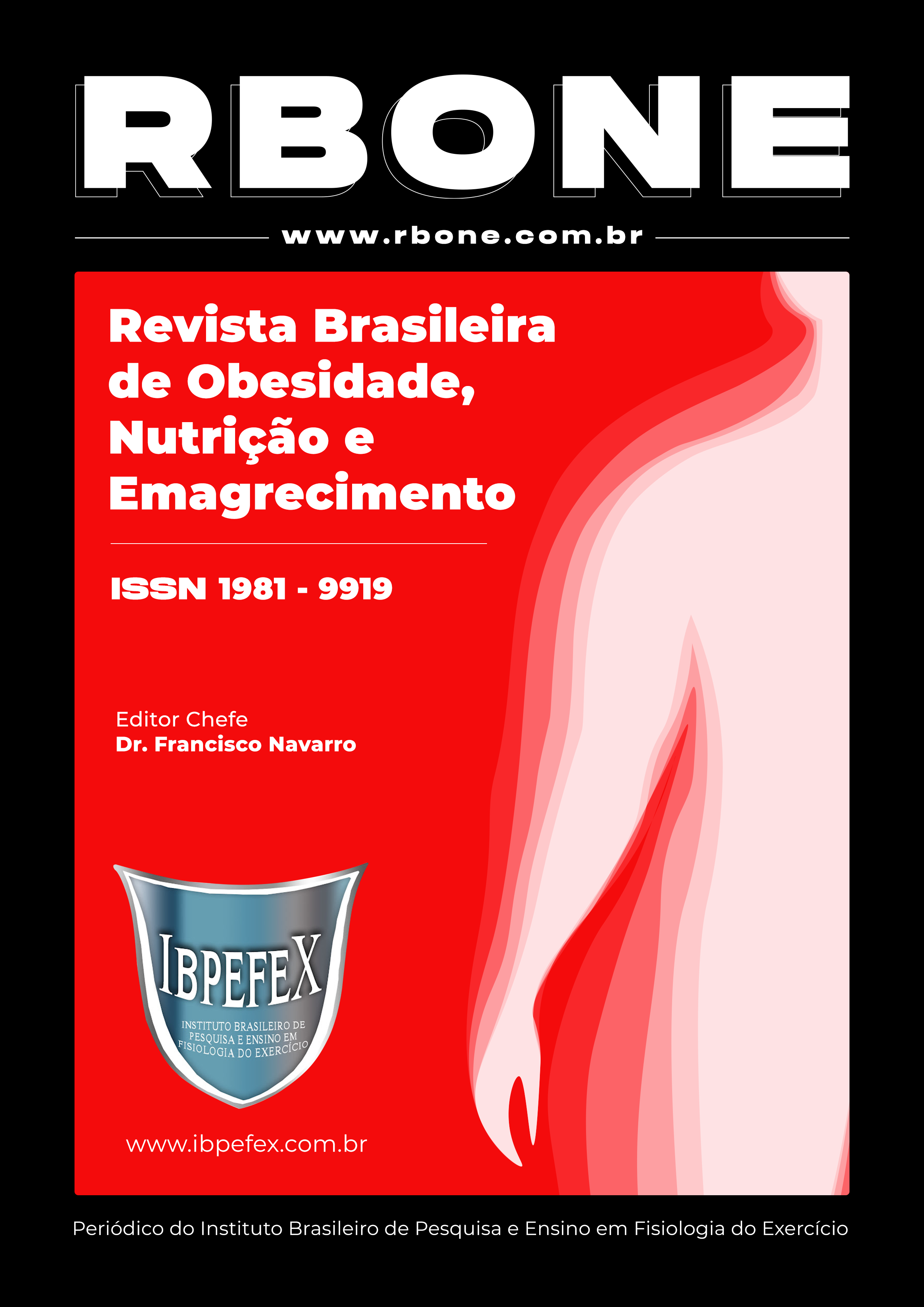Quality of sleep of university students who use caffeine
Abstract
Introduction: Sleep deprivation is considered a public health problem and is directly related to several academic and health consequences. Caffeine is the main substance ingested by university students who aim to improve performance in their studies, however caffeine can cause harm due to its effects on the central nervous system, impairing the quality of sleep. Objective: To evaluate the quality of sleep of university students who use caffeine. Materials and methods: this is a descriptive and quantitative research that evaluated the responses to an online questionnaire on food frequency and sleep quality among university students from different courses and periods of study, aged between 18 and 59 years old, both sexes, with statistical data analysis. Results: The main foods eaten by university students every day are pure coffee, coffee or chocolate milk and other foods with chocolate and drinks such as sodas, cola and guarana are consumed once a week. Conclusions: this study concluded that the main food containing caffeine consumed by students is pure coffee and coffee with chocolate or coffee. Further work with a larger number of university participants is recommended to analyze the association of caffeine consumption with quality of sleep using standardized instruments.
References
-Andrade, A.; Sousa, C.; Pedro, M.; Fernandes, M. Dangerous mistake: an accidental caffeine overdose. BMJ case reports. Vol. 8. 2018.
-Archer, S.N.; Oster, H. How sleep and wakefulness influence circadian rhythmicity: effects of insufficient and mistimed sleep on the animal and human transcriptome. Journal of sleep research. Vol. 24. Núm. 5. p. 476-493. 2015.
-Bertolazi, A.N.; Fagondes, S.C.; Hoff, L.S.; Dartora, E.G.; Miozzo, I.C.; de Barba, M.E.; Barreto, S.S. Validation of the Brazilian Portuguese version of the Pittsburgh sleep quality index. Sleep medicine. Vol. 12. Núm. 1. p. 70-75. 2011.
-Cappelletti, S.; Piacentino, D.; Fineschi, V.; Frati, P.; Cipolloni, L.; Aromatario, M. Caffeine-related deaths: manner of deaths and categories at risk. Nutrients. Vol. 10. Núm. 5. p. 611. 2018.
-Espinosa Jovel, C.A.; Sobrino Mejía, F.E. Caffeine and headache: specific remarks. Neurología (English Edition). Vol. 32. Núm. 6. p. 394-398. 2017.
-Kansagra, S. Sleep disorders in adolescents. Pediatrics. Vol. 145. Supplement. 2. p. S204-S209. 2020.
-Nestler, E.J.; Hyman, S.E.; Malenka, R.C. Molecular neuropharmacology: A foundation for clinical neuroscience. NY: McGraw-Hill Medical. 2009.
-Mahoney, C.R.; Giles, G.E.; Marriott, B.P.; Judelson, D.A.; Glickman, E.L.; Geiselman, P.J.; Lieberman, H.R. Intake of caffeine from all sources and reasons for use by college students. Clinical nutrition. Vol. 38. Núm. 2. p. 668-675. 2019.
-Moore, M.; Meltzer, L.J. The sleepy adolescent: causes and consequences of sleepiness in teens. Paediatric respiratory reviews. Vol. 9. Núm. 2. p. 114-121. 2008.
-O’Callaghan, F.; Muurlink, O.; Reid, N. Effects of caffeine on sleep quality and daytime functioning. Risk management and healthcare policy. Vol. 11. p. 263. 2018.
-Nathanson, J.A. Caffeine and related methylxanthines: possible naturally occurring pesticides. Science. Vol. 226. Núm. 4671. p. 184-187. 1984.
-Nieber, K. The impact of coffee on health. Planta medica. Vol. 83. Núm. 16. p. 1256-1263. 2017.
-Patrick, M.E.; Griffin, J.; Huntley, E.D.; Maggs, J.L. Energy drinks and binge drinking predict college students’ sleep quantity, quality, and tiredness. Behavioral sleep medicine. Vol. 16. Núm. 1. p. 92-105. 2018.
-Ribeiro, J.A.; Sebastiao, A.M. Caffeine and adenosine. Journal of Alzheimer's Disease. Vol. 20. Núm. s1. p. S3-S15. 2010.
-Van Dam, R.M.; Hu, F.B.; Willett, W.C. Coffee, caffeine, and health. New England Journal of Medicine. Vol. 383. Núm. 4. p. 369-378. 2020.
-Zisapel, N. New perspectives on the role of melatonin in human sleep, circadian rhythms and their regulation. British Journal of Pharmacology. Vol. 175. Núm. 16. p. 3190-3199. 2018.
Copyright (c) 2025 Werbison Matheus de Freitas Pereira, Rhuan Ferreira da Silva, Maria Eduarda Leal Silva, Jennifer Cantanhede Nunes Pinto, Rafaella Maria Monteiro Sampaio

This work is licensed under a Creative Commons Attribution-NonCommercial 4.0 International License.
Authors who publish in this journal agree to the following terms:
- Authors retain the copyright and grant the journal the right of first publication, with work simultaneously licensed under the Creative Commons Attribution License BY-NC which allows the sharing of the work with acknowledgment of the authorship of the work and initial publication in this journal.
- Authors are authorized to enter into additional contracts separately for non-exclusive distribution of the version of the work published in this journal (eg, publishing in institutional repository or book chapter), with acknowledgment of authorship and initial publication in this journal.
- Authors are allowed and encouraged to post and distribute their work online (eg, in institutional repositories or on their personal page) at any point before or during the editorial process, as this can bring about productive change as well as increase impact and impact. citation of published work (See The Effect of Free Access).






